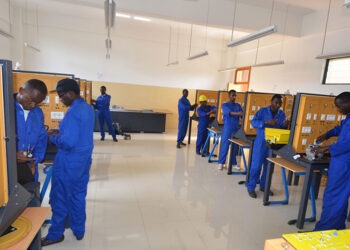A government initiative offering subsidised loans to Rwandan exporters is driving strong results in business growth, job creation and public revenue, according to new research.
Launched in 2016 by the Ministry of Trade and Industry (MINICOM) and the Development Bank of Rwanda (BRD), the Export Growth Fund (EGF) provides loans at significantly reduced interest rates to encourage firms to expand production and enter international markets.
While commercial interest rates in Rwanda typically range between 17 and 19 percent, EGF loans are offered at just 10 to 12 percent.
A recent study by researchers from Yale University, Harvard Kennedy School, Université Libre de Bruxelles and the International Growth Centre (IGC) examined the fund’s impact by analysing data from BRD loan records and the Rwanda Revenue Authority (RRA). Their findings suggest that the EGF has made a substantial contribution to improving the performance of recipient businesses.
According to the study, businesses that received EGF loans between 2016 and 2022 experienced a notable rise in both revenue and employment within two years of accessing the funds.
On average, these firms reported 50 percent higher business revenues compared to similar companies that did not receive the loans. Employment also saw a 30 percent boost, with firms hiring more permanent workers as they scaled operations.
The researchers found that the likelihood of exporting among recipient firms increased by 10 percentage points, signaling improved access to global markets. However, the study did not find a statistically significant increase in the overall volume of exports, which the authors attributed to the small number of established exporters in their sample.
Interestingly, the benefits of the fund appeared especially strong for smaller businesses within the recipient group. Enterprises with below-median revenues before receiving support recorded even greater gains in performance, indicating that targeted financing can play a critical role in unlocking the potential of emerging exporters.
Although the EGF was originally designed to help small firms overcome financing barriers, the study revealed that most early recipients were already among Rwanda’s larger businesses. These firms typically operated in agriculture and manufacturing and had higher revenues and more export experience before obtaining the loans.
The researchers adjusted for this in their analysis by comparing loan recipients with carefully matched firms of similar size and sector profile.
Beyond business performance, the study also looked at the fiscal impact of the programme. Two years after receiving EGF loans, beneficiary firms paid up to twice as much in corporate income tax compared to before, and showed a 30 to 40 percent increase in Pay-As-You-Earn (PAYE) contributions.
According to the research team, this growth in tax revenue is sufficient to cover the programme’s costs in less than five years, making it a fiscally sustainable policy tool for industrial development.
“This suggests that when targeted effectively, subsidised credit can generate not just private sector growth, but also public revenue, making it a win-win for firms and government,” the researchers said in their findings.
In a move to build on the success of the EGF, MINICOM, BRD and the IGC are now working on a new phase of research. They are designing a randomised-controlled trial (RCT) to evaluate Rwanda’s Export Credit Guarantee Facility (ECGF).











